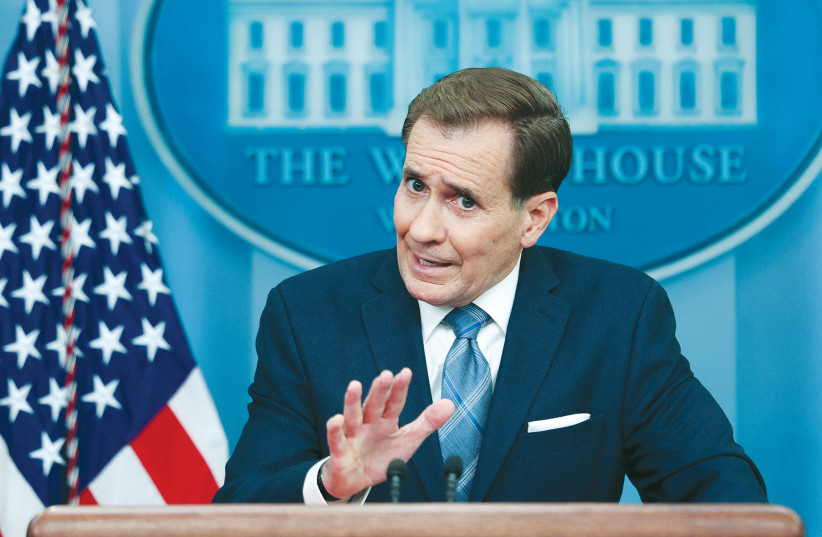The US announced its designation of the Houthis as a Specially Designated Global Terrorist group on Wednesday, according to a statement from Secretary of State Anthony Blinken, which will take effect in 30 days.
Today's announcement comes after the US and UK, with support from Australia, Bahrain, Canada, and the Netherlands, struck Houthi targets in over 100 airstrikes across Yemen within the past week, the Post reported.
The State Department previously issued the Foreign Terrorist Organization designation to the Houthis, but revoked it in February 2021 due to the dire humanitarian situation in Yemen, a move Moammar Al-Eryani, information minister of the Republic of Yemen, heavily criticized in a 2021 editorial in the Post.
At separate news briefing Wednesdays, both State Department spokesperson Matthew Miller and White House National Security spokesman John Kirby said the removal of the FTO designation in 2021 was not a mistake.
"The previous designation was FTO, Foreign Terrorist Organization, which doesn't have quite the measure of flexibility in terms of humanitarian assistance," Kirby said. "So a big reason why we delisted them literally on day one was to address a dire, dire humanitarian situation on the ground."

The humanitarian situation remains dire, Kirby said, and the Houthis are more concerned with gaining weapons capabilities and attacking ships in the Red Sea.
Miller said the US will continue to make it clear to the Houthis that their attacks against commercial vessels must stop, and that the US will remain prepared to take additional actions if necessary.
Miller said the US is aware of the "grave humanitarian" situation in Yemen and is working to mitigate the adverse impacts of the designation on the people of Yemen, by ensuring that food, fuel, essential commercial goods, and humanitarian aid can reach civilians.
Miller said the US chose to use the Specially Designated Global Terrorist designation instead of the FTO designation as the latter ran the risk of having a deterrent effect on aid groups.
"We saw when there was previously an FTO designation in place, it did have a deterrent effect on aid groups," Miller said.
At the White House on Wednesday, National Security Council spokesman John Kirby said the designation takes effect 30 days from now in order to allow the US time to work with aid organizations to ensure that groups understand the ramifications of the designation.
Houthis changed since 2021
According to Miller, the circumstances surrounding the Houthis have changed in the last few years as the group was not launching attacks on commercial shipping in the Red Sea in 2021.
Miller said the US is also taking military actions that it was not taking in 2021 because it's a different situation now.
The designation will allow the US to deny the Houthis access to the US financial system, according to Miller, and enable sanctions on "other bad actors who support them."
Miller said the designation generally gives the US more tools to go after the Houthis access to funds it wants to deny them.
Both Miller and Kirby were questioned on statements from Saudi Arabia's Foreign Minister who on Tuesday said the Houthi attacks in the Red Sea are connected to the war in Gaza.
Miller said this linkage is "a bit absurd" as commercial ships attacked by the Houthis are not flagged as Israeli or US ships.
"Which is the point that we have tried to make clear in marshaling this international coalition to impose consequences on the Houthis," Miller said. "So the message to Iran is the same as it was to the Houthis, which is attacking unarmed civilian vessels that are just sailing through international waters, has nothing to do with the conflict in Gaza, and we will do what we need to do to deter those attacks."
"Now, we don't think it's in Iran's interest to see any escalation, and we think Iran should send a very clear, deliberate message to all of its proxies to stand down, to stop fomenting instability across the region," Miller said.
